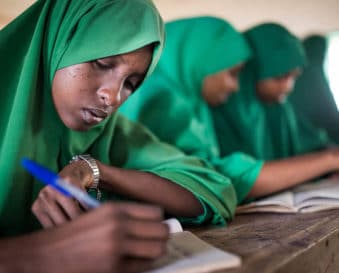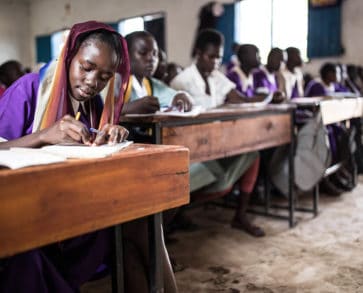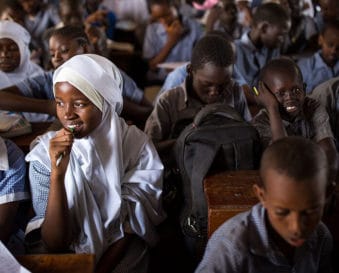
In response to COVID-19, the Government of Kenya, much like other governments around the world, initiated lockdowns of businesses and schools and implemented curfews to help curb transmission.
Read MoreThrough the Her Future campaign, WUSC is contributing to girls’ empowerment to pursue educational pathways in crisis-affected areas. Canadians and people living in Canada can take small, everyday actions to have a tangible impact on the lives of girls in fragile, conflict and crisis situations globally.
By raising awareness of the challenges girls in crisis situations face in accessing education through volunteering, donating, and supporting the Her Future campaign, you will be helping to increase literacy rates, improve health outcomes, and empower girls to be agents of change in their lives. Get involved and help remove barriers to accessing education for girls so that they can achieve their goals.
Did you know that girls in crisis situations are two times less likely to access secondary education than their male peers?
WUSC has directly supported 16,593 girls in crisis situations by removing barriers to education.
Last year, thanks to our program, 15,900 girls received education support

In response to COVID-19, the Government of Kenya, much like other governments around the world, initiated lockdowns of businesses and schools and implemented curfews to help curb transmission.
Read More
A recent study by UNHCR on education for refugees reports that fewer than one in four refugee adolescents are currently enrolled in secondary school.
Read More
Refugee girls face overwhelming barriers to accessing quality education. Beyond realities that affect many young women, such as early and forced marriage, early pregnancy, an unfair burden…
Read More

